At the Banff International String Quartet Competition, Rita Fernandes heard some of today’s top young ensembles, each with its own personality
![[1st prize] Poiesis Quartet in round 3 (2)](https://dnan0fzjxntrj.cloudfront.net/Pictures/480xany/1/9/5/41195_1stprizepoiesisquartetinround32_547631.jpg)
Discover more Featured Stories like this in The Strad Playing Hub.
Read more premium content for subscribers here
On 24 August at the Banff Centre for Arts and Creativity, a small village convened. Groups of people steadily exited buses incoming from Calgary airport and checked in at the centre’s chalet-style hotel. Nestled in the heart of the Canadian Rocky Mountains, this impossibly beautiful campus is dotted with chalets, workshops and restaurants connected by winding paths: a tiny town populated by musicians, poets, visual artists and even a deer every now and then.
Nearly 200 visitors had bought a full-week package to the 2025 edition of the triennial Banff International String Quartet Competition (BISQC), which took place from 25 to 31 August. The extensive package included meals, tickets to all concerts and panels, and more. It had sold out in only six hours.
The audience experience is a vital element of the competition, Barry Shiffman, competition director and 1992 BISQC winner (with the St Lawrence Quartet), told me. ‘We’ve nurtured a community of people who love the art form. There’s an almost 100 per cent return rate.’ And because of the BISQC’s remarkable transparency, audience members are encouraged to go deeper into the competition experience. During a morning panel session, they were even told in broad terms how the jury’s decision is calculated (the competition has two in-house mathematicians).
This transparency extends to the competitor experience too, specifically through the ‘mentor-in-residence’ role. This edition’s mentor, Mark Steinberg from the Brentano Quartet, was on site to assist competitors in whatever way they needed. And crucially, he was not part of the jury. ‘In a way, it’s weird in the context of a competition,’ a member of one quartet told me. But then they described the initiative as one of the best parts of the event. ‘We realised – why wouldn’t you have it at every competition?’
![[2nd prize] Arete Quartet in finals (1)](https://dnan0fzjxntrj.cloudfront.net/Pictures/480xany/1/9/6/41196_2ndprizearetequartetinfinals1_58429.jpg)
But let’s move on to why we were all there: the music. The competition consisted of four semi-final rounds in which all nine competing quartets performed, plus the Sunday final round comprising three finalists. In the first round, each ensemble performed a Haydn quartet as well as a 21st-century work. For the second round, they chose a quartet from the Romantic or nationalist repertoire of the 19th century, or one from a list comprising the Debussy, Ravel, Elgar and Sibelius quartets. The Paris-based Elmire Quartet stood out immediately with its distinctively rich sound and assured musical identity. Only musicians with their uniquely passionate style of playing could perform a Haydn second movement with the intensity of Bartók’s music and make it work. As they finished, holding their bows identically suspended in the air, it was clear that they moved, phrased and emoted as one.
Berlin’s Viatores Quartet masterfully navigated the manic contrasts of Jörg Widmann’s Third String Quartet, the Jagdquartett (2003), which involved miming the stabbing and ultimate killing of the screaming cellist. ‘You’ve got to have a cellist who can pull it off!’ one of the players told me. Their cellist was so committed that he had almost lost his voice during rehearsals.
The Poiesis Quartet (from Cincinnati) then performed Many Many Cadences (2015) by US composer Sky Macklay (b.1988). The group’s approach to every contemporary work throughout the competition felt no different from that
to works by any other revered quartet composer. In Macklay’s work, the Poiesis skilfully morphed dissonant clusters into light-filled chords. And in a muscular Brahms no.3 in B flat major op.67, violist Jasper de Boor switched effortlessly between soloist and ensemble player. ‘Jasper is a natural leader!’ the players later told me.
The Poiesis Quartet’s visceral performance of Bartók’s Fifth was a truly human experience
On 29 August, for the third round, all the quartets premiered the Canadian composer Kati Agócs’s specially commissioned Third String Quartet, Rapprochement (2025). The work’s sustained cluster chords suited the Arete Quartet’s clean and pure sound, which distinguished the Seoul-based group throughout the competition. It was also interesting to see both French quartets (the Magenta and Elmire) find meaning in a fuller tone. But it was the Poiesis Quartet, clearly at home with the contemporary style, that offered the most distinctive musical identity in the work.
In the fourth round (labelled Beethoven/Schubert + 20th Century), the Magenta Quartet impressed with an intricate and convincing performance of György Ligeti’s fiendishly difficult String Quartet no.1 (Métamorphoses nocturnes). And in Hindemith’s musically and emotionally dense String Quartet no.5, the Viatores Quartet’s earnest playing was thoroughly gripping. It appropriately ended with headbanging from the cellist.
The Poiesis Quartet’s visceral performance of Bartók’s Fifth Quartet was a truly human experience. The work’s glorious madness was pushed to its very limits, and the intuitive playing made it easy to forget just how technically difficult the piece is. It was touching to see the musicians responding to each other in real time – they seemed as in awe of each other as we were of them. The group ultimately advanced to the finals alongside the Arete and Kairi quartets.
For the first time in the competition’s history, finalists were given a completely free choice of repertoire. In its 21st-century-only programme, the Poiesis Quartet played works by Jerod Impichchaachaaha’ Tate, Brian Raphael Nabors, Joe Hisaishi and Kevin Lau. It was a final reminder of just how intoxicating this group’s playing is, particularly in the more active moments where it felt as though it could burst at the seams.
![[3rd prize] Quartet KAIRI in finals](https://dnan0fzjxntrj.cloudfront.net/Pictures/480xany/1/9/7/41197_3rdprizequartetkairiinfinals_575299.jpg)
The Quartet Kairi’s programme reflected the group’s origins by focusing on the Japanese concept of Shu-Ha-Ri, which outlines the three stages of learning, culminating in the potential to break from tradition. The last piece was Shostakovich’s String Quartet no.8, representing ‘transcending tradition’. By framing the crazed yet tragically desolate piece in this way, the players invited listeners to examine truly the intentions behind it. This was made even more engaging by the group’s spirited yet intimate playing.
Finally, in Britten’s Three Divertimenti the Arete Quartet displayed unparalleled precision. The music was masterfully paced with a clear thread running through the contrasting movements. The group called upon an array of textures to express the work’s many colours, irregular rhythms and free-flowing tempos.
The Poiesis won the grand prize of CA$25,000 alongside a flurry of residencies, performance opportunities and more. The Arete came in second and the Kairi third. In the press conference immediately afterwards, the buzzing Poiesis Quartet – violinist Sarah Ying Ma still teary-eyed from the results – outlined with clarity and humility the group’s mission to promote 21st-century works. It was already evident through the music, but the musicians’ words confirmed it: this is an ensemble that knows itself remarkably well. ‘We show up for each other,’ said one of the players. It reminded me of something Shiffman had inadvertently foreshadowed in our interview before the competition: ‘The most successful quartet will harness the power of the support around them.’
It is clear that the Poiesis Quartet is not only a group technically and musically deserving of winning a competition today, but also an ethos-driven ensemble poised to define tomorrow.
Read: Poiesis Quartet signs with MKI Artists
Read: Postcard from France: Bordeaux International String Quartet Competition
Discover more Featured Stories like this in The Strad Playing Hub.
Read more premium content for subscribers here

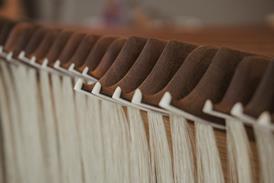

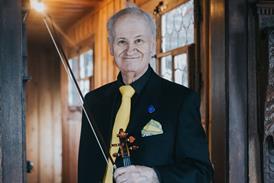
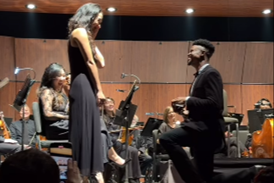
![[1st prize] Poiesis Quartet in round 3 (2)](https://dnan0fzjxntrj.cloudfront.net/Pictures/274x183/1/9/5/41195_1stprizepoiesisquartetinround32_547631.jpg)

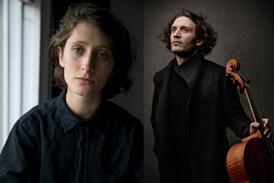


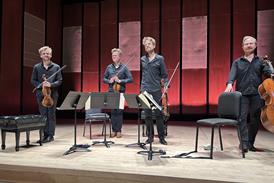

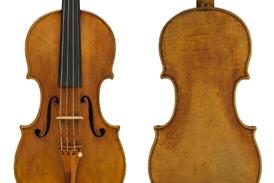
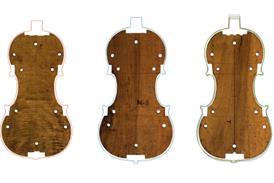
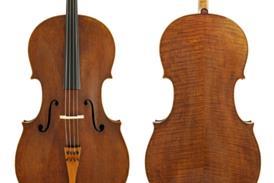



























No comments yet